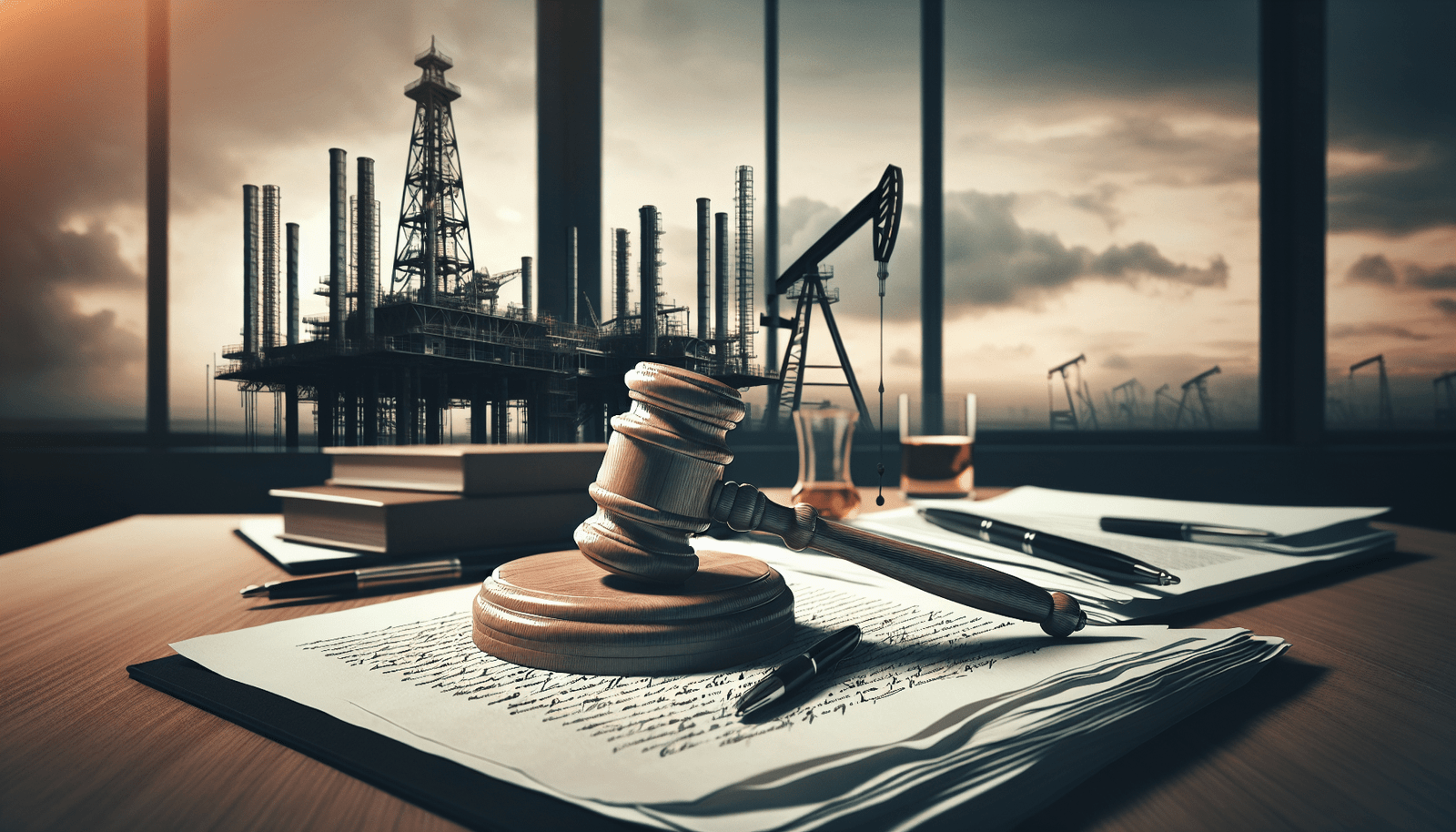Is finding the right legal representation for an oil rig accident a complex undertaking? This question looms large for many in the wake of an unfortunate incident on the high seas or distant rigs. As we navigate this terrain of legal intricacies and personal recovery, understanding the role and significance of an Oil Rig Accident Lawyer becomes essential. Who are these professionals? What specific assistance do they provide, and why is hiring the right one so crucial? This exploration will consider these questions, provide guidance for potential legal claims, and outline critical factors in selecting the most appropriate representative for your unique circumstances.
Understanding the Role of an Oil Rig Accident Lawyer
An Oil Rig Accident Lawyer specializes in cases involving incidents that occur on offshore oil rigs. Legal matters in this environment are intricate, often involving maritime laws, federal regulations, and multiple jurisdictions. Consequently, specialized legal expertise becomes a necessity.
What Does an Oil Rig Accident Lawyer Do?
The primary responsibility of an Oil Rig Accident Lawyer is to advocate for those injured during offshore drilling operations. Such lawyers possess a deep understanding of maritime and personal injury law, often undertaking the tasks of investigating accident circumstances, gathering evidence, and negotiating settlements or pursuing litigation.
Who Needs an Oil Rig Accident Lawyer?
Anybody involved in an oil rig accident, whether an employee on the rig, a contractor, or even a visitor, might need the services of an Oil Rig Accident Lawyer. Given the complex legal landscape, these professionals are instrumental in navigating the worker’s compensation claims, negligence suits against employers, or third-party lawsuits involving equipment manufacturers or other relevant parties.
Types of Cases an Oil Rig Accident Lawyer Handles
An array of unfortunate occurrences can necessitate the involvement of an Oil Rig Accident Lawyer. Common cases include accidents due to equipment failure, inadequate safety measures, exposure to hazardous substances, or slips and falls. Each scenario involves distinct legal frameworks, requiring tailored approaches towards achieving just outcomes.
Potential Compensation in Oil Rig Accident Cases
Victims of oil rig accidents can be entitled to various forms of compensation. However, these entitlements depend significantly on the individual case circumstances, jurisdiction, and the lawyer’s proficiency in articulating and substantiating claims.
Types of Compensation
Victims might receive compensation for medical expenses, lost wages, physical and emotional suffering, and other damages. In tragic circumstances involving fatalities, families may also seek wrongful death claims. Additionally, punitive damages could be pursued if gross negligence can be demonstrated.
Factors Affecting Compensation
The exact compensation awarded varies, influenced by factors such as the severity of injury, length of recovery, impact on quality of life, and culpability of other parties involved. An adept lawyer identifies all liable parties and substantiates claims with detailed evidence to maximize potential compensation.
Choosing the Right Oil Rig Accident Lawyer
The selection of an Oil Rig Accident Lawyer carries substantial implications for the outcome of a case. With numerous legal professionals available, careful consideration ensures a match with both the client’s needs and the specifics of the legal situation.
Evaluating Qualifications and Experience
First and foremost, it is crucial to assess a lawyer’s experience with oil rig accidents. Does the lawyer have a proven track record with similar cases? Qualifications in maritime and personal injury law and courtroom experience should also feature prominently in decision criteria.
Assessing Communication and Availability
Effective communication between client and lawyer is essential. The ideal lawyer should be accessible, transparent, and communicative, ensuring clients remain well-informed regarding the progress and direction of their case.
Reviewing Reputation and Recommendations
Consider obtaining references or reading client testimonials to understand a lawyer’s reputation. Word-of-mouth recommendations and online reviews provide valuable insights into a lawyer’s effectiveness and commitment.
Cost Considerations
Cost is a relevant factor as well, as legal proceedings can be costly. However, many accident lawyers operate on a contingency fee basis, meaning fees are collected only after a successful settlement. Understanding the financial agreement upfront helps in making an informed choice.
Crafting a Strong Case with the Right Lawyer
The assembly of a compelling legal case involves collaboration between the lawyer and the client. While the lawyer supplies legal expertise and strategy, the client provides vital information and documentation.
Gathering Documentation
Comprehensive documentation is the bedrock of any effective legal claim. Medical records, accident reports, photographic evidence, and witness statements serve to anchor a case in factual reality. Collaborative collection and presentation of paperwork enhance case credibility and bolster the lawyer’s articulation of claims.
Participating Actively in Strategy Development
Engagement in strategy discussions fosters mutual understanding and fortifies the lawyer-client partnership. Clients should feel empowered to voice concerns and insights, contributing to a strategic approach bespoke to their case’s nuances.
Concluding Considerations: Taking Action
In the wake of an oil rig accident, proactive engagement in legal representation selection is key. We must remember that while the right Oil Rig Accident Lawyer cannot erase the event, they significantly influence the journey toward recovery, justice, and financial stability. For those confronting these challenging times, seeking the right counsel is not merely an option but a pivotal step towards reclaiming one’s life. Reach out, inquire, and choose wisely—the path to resolution and recompense awaits your decisive action.
